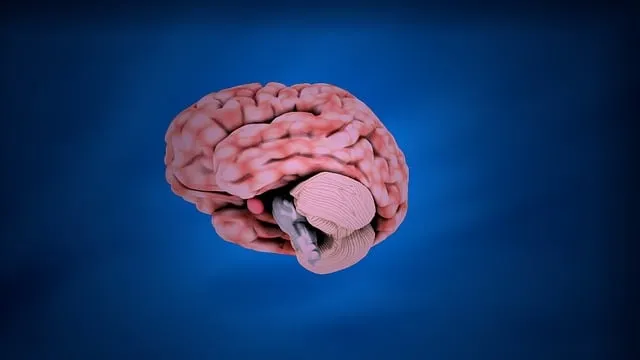Kaiser Permanente's holistic mental health approach prioritizes superior care through comprehensive risk assessment, cultural sensitivity, evidence-based practices, and burnout prevention. This includes self-awareness exercises, peer supervision, and professional development for staff, fostering resilient practitioners who can address symptoms and underlying factors. By implementing tailored crisis interventions, accessible anxiety relief, staff training in risk assessment, cultural competency, and remote support technologies, mental health organizations can emulate Kaiser Permanente's success, enhancing service quality and patient outcomes.
“In the realm of mental healthcare, risk assessment is a vital tool for ensuring patient safety and fostering superior outcomes. This comprehensive article explores this critical aspect through the lens of Kaiser Permanente’s proven practices. We delve into understanding risk assessment as an integral part of mental health practices, uncovering key elements for effective strategies. Furthermore, it highlights best practices and tools for mental health organizations to mitigate risks, inspired by Kaiser Permanente’s successful approach, ultimately enhancing patient care and well-being.”
- Understanding Risk Assessment in Mental Health Practices: A Kaiser Permanente Perspective
- Key Elements of Effective Risk Assessment Strategies for Mental Health Professionals
- Mitigating Risks: Best Practices and Tools for Mental Health Organizations (Inspired by Kaiser Permanente's Approach)
Understanding Risk Assessment in Mental Health Practices: A Kaiser Permanente Perspective

At Kaiser Permanente mental health, we understand that risk assessment is a critical component of providing superior care to our clients. It’s not just about identifying potential hazards; it involves a comprehensive analysis of various factors that can impact an individual’s mental well-being. Our approach integrates both clinical expertise and a deep sensitivity to the unique cultural contexts in which our clients live, as we firmly believe that Cultural Sensitivity in Mental Healthcare Practice is paramount for effective treatment.
We recognize that mental illness stigma reduction efforts are essential in fostering a supportive environment where individuals feel comfortable seeking help. By incorporating evidence-based practices and continuous training on burnout prevention strategies, we strive to ensure our professionals remain resilient and equipped to handle the complex needs of their clients. Through these holistic risk assessment methods, Kaiser Permanente mental health aims to deliver exceptional care, addressing not just symptoms but also the underlying factors that contribute to overall mental health and well-being.
Key Elements of Effective Risk Assessment Strategies for Mental Health Professionals

Mental health professionals play a critical role in identifying and mitigating risks associated with their own well-being. Effective risk assessment strategies are essential tools to ensure they can provide superior care while safeguarding against potential hazards. Key elements include a comprehensive evaluation of personal and professional factors, such as self-awareness exercises that promote introspection and identify emotional triggers. By fostering positive thinking and resilience, professionals can better navigate challenging situations and maintain healthy boundaries.
Moreover, these strategies should encompass a thorough review of patient cases, considering the unique risks and vulnerabilities presented by each individual. Incorporating regular peer supervision and professional development opportunities enables mental health practitioners to stay abreast of best practices in risk assessment and management. The ultimate goal is to create a culture that prioritizes self-care, enhances clinical decision-making, and ultimately improves patient outcomes, as exemplified by the superior quality of care provided by Kaiser Permanente’s mental health services.
Mitigating Risks: Best Practices and Tools for Mental Health Organizations (Inspired by Kaiser Permanente's Approach)

Mental health organizations can significantly mitigate risks by adopting best practices and tools inspired by Kaiser Permanente’s approach. This includes implementing robust crisis intervention guidance tailored to diverse client populations, ensuring accessibility of anxiety relief strategies, and fostering an environment that boosts client confidence. By integrating these practices, professionals can enhance safety protocols, promote positive outcomes, and create a supportive atmosphere.
Following Kaiser Permanente’s lead, organizations should prioritize regular staff training in risk assessment techniques, crisis management, and cultural competency. Utilizing evidence-based interventions and leveraging technology for remote support can further reduce risks. Additionally, fostering open communication channels and implementing robust supervision and peer support systems contribute to a comprehensive risk mitigation strategy, ensuring superior mental health care services.
Mental health professionals, inspired by Kaiser Permanente’s approach, can significantly mitigate risks within their practices through comprehensive risk assessment strategies. By understanding key elements such as patient history, risk factors, and environmental influences, along with utilizing best practices and tools like predictive analytics and robust communication protocols, mental health organizations can foster superior care while ensuring the safety of their clients and staff. This proactive approach not only enhances service quality but also contributes to a more resilient and effective mental health landscape.






